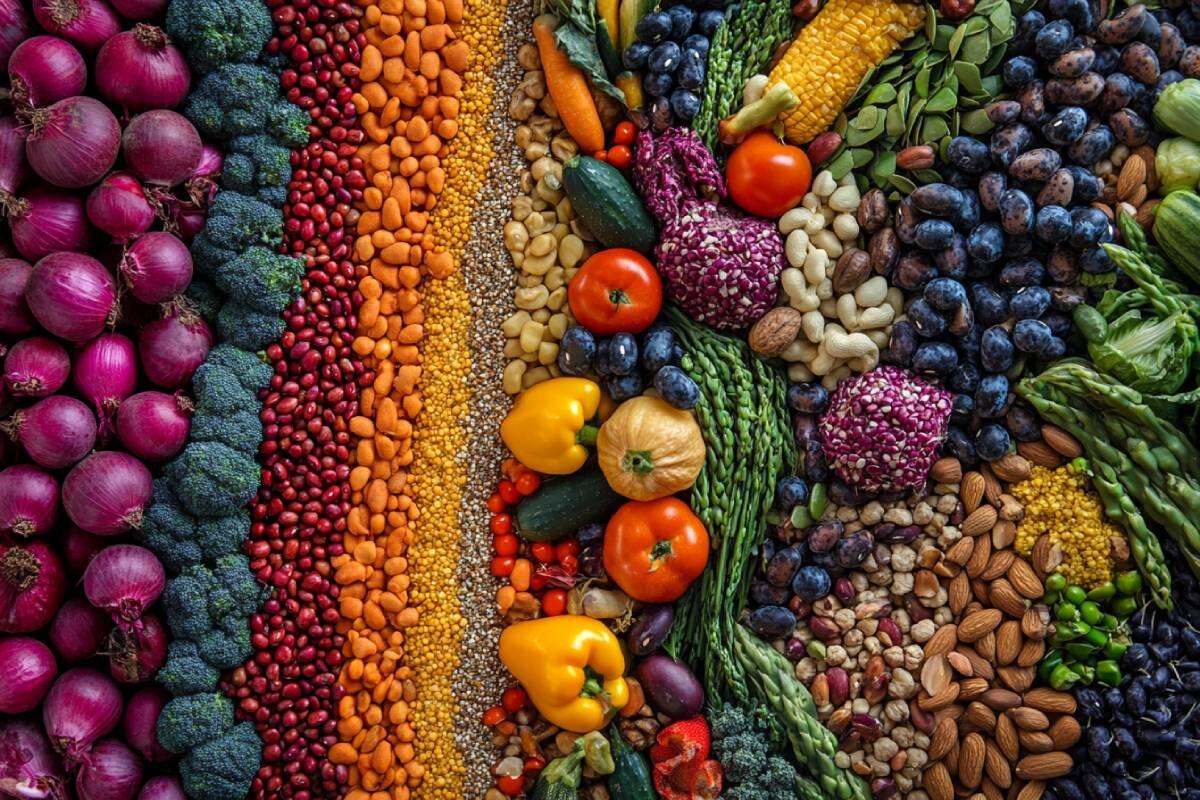Vegan Diet: Is It Healthy for Everyone?
In recent years, the vegan diet has evolved from a niche practice to a widely adopted lifestyle worldwide.
Motivated by ethical, environmental, and health concerns, this dietary choice excludes all animal-derived products, including meat, milk, eggs, honey, and their derivatives.
But is a vegan diet healthy for everyone, regardless of age, lifestyle, and health condition?
What Is a Vegan Diet?
A vegan diet consists exclusively of plant-based foods such as fruits, vegetables, legumes, grains, nuts, and seeds.
The main difference between veganism and other vegetarian diets is that the former completely eliminates all animal products, whereas vegetarians may include eggs or dairy.
Vegan advocates argue that, in addition to promoting health, this diet reduces environmental impact and combats animal exploitation practices.
Benefits of a Vegan Diet
Scientific studies indicate that a well-planned vegan diet can provide various health benefits. Among them:
1. Improved Cardiovascular Health
✔ Rich in fiber and low in saturated fats
✔ Reduces LDL ("bad") cholesterol and blood pressure
✔ Lower risk of heart disease, according to the American Heart Association
2. Reduced Risk of Type 2 Diabetes
✔ Helps maintain stable blood sugar levels
✔ Rich in whole grains, legumes, and vegetables
✔ Lower likelihood of insulin resistance
3. Weight Management
✔ Vegans tend to have a lower BMI
✔ High fiber intake promotes satiety
✔ Reduces calorie intake by eliminating ultra-processed foods high in saturated fats
4. Reduced Risk of Certain Types of Cancer
✔ Rich in antioxidants from fruits, vegetables, and whole grains
✔ Lower risk of colon and breast cancer
✔ Plant-based foods contain phytochemicals, such as flavonoids and carotenoids, with anticancer properties
5. Positive Environmental Impact
✔ Lower greenhouse gas emissions
✔ Reduced use of natural resources such as water and land
Although this is not a direct health benefit, adopting a vegan diet significantly contributes to environmental sustainability.
Challenges of a Vegan Diet
Despite its benefits, a vegan diet requires attention to avoid nutritional deficiencies.
Nutrients such as vitamin B12, iron, calcium, vitamin D, and omega-3 must be obtained through fortified foods or supplements, as they are not easily found in plant-based foods.
Additionally, maintaining a balanced diet requires:
✔ Meal planning
✔ Nutritional knowledge
✔ Higher financial investment in some regions
Another challenge is the initial adaptation, especially for those accustomed to consuming meat and dairy products.
Despite these difficulties, studies indicate that a well-planned vegan diet can meet all nutritional needs at any stage of life, provided there is guidance from a Nutritionist.
Is It Healthy for Everyone?
The suitability of a vegan diet depends on factors such as age, lifestyle, health conditions, and nutritional planning.
1. Children and Adolescents
✔ Can be healthy, provided it includes adequate calories, protein, iron, calcium, and vitamin B12
✔ Important to ensure the intake of fortified foods and supplements
2. Pregnant and Lactating Women
✔ Requires careful monitoring of iron, calcium, vitamin B12, and omega-3
✔ Supplementation is essential to prevent nutritional deficiencies that may affect both mother and baby
3. Athletes
✔ Optimal physical performance can be maintained with varied plant-based proteins, such as tofu, chickpeas, and quinoa
✔ Important to ensure sufficient calorie intake
4. Elderly Individuals
✔ May be beneficial for preventing chronic diseases
✔ Special attention is needed for protein, calcium, and vitamin B12, which are crucial to prevent muscle and bone loss
A nutritionist's guidance is essential at all stages to ensure a balanced diet.
How to Maintain a Healthy Vegan Diet
To enjoy the benefits of a vegan diet without compromising health, it is essential to follow some recommendations:
✔ Maintain a varied diet, including a wide range of whole and colorful foods to obtain all essential nutrients
✔ Consume fortified foods with vitamin B12, calcium, and vitamin D, and consider supplements when necessary
✔ Avoid ultra-processed vegan foods, prioritizing natural and minimally processed options
✔ Consult a nutritionist to develop a personalized dietary plan
Conclusion
A vegan diet can be highly beneficial, provided it is well-planned and ensures adequate intake of all essential nutrients.
✔ Promotes cardiovascular health
✔ Reduces the risk of type 2 diabetes and cancer
✔ Contributes to environmental sustainability
However, it requires special attention to certain critical nutrients and should be adapted to each stage of life with the support of a nutritionist.
When properly planned, it can be a healthy and sustainable choice for everyone!
